UN warns about escalating humanitarian crisis in Gaza as over 142,000 displaced within a week
The United Nations has raised alarm over the escalating humanitarian crisis in the Gaza Strip, reporting that at least 142,000 Palestinians have been displaced within just one week due to intensified Israeli bombardments and forced evacuation orders.
Citing the Office for the Coordination of Humanitarian Affairs (OCHA), UN spokesperson Stephane Dujarric said at a news conference on Wednesday that 142,000 Palestinians were forcibly displaced since Israel resumed its war on Gaza on March 18.
“Relentless bombardments and daily displacement orders, coupled with the ongoing blockade on cargo entering Gaza and systematic denials of humanitarian movements inside the strip, are having a devastating impact on the entire population of more than 2 million people,” Dujarric said.
Dujarric noted that as the conflict intensifies, the number of displaced individuals is expected to rise significantly.
Late on Tuesday, OCHA warned that many people are now "staying on the streets, in desperate need of food, drinking water, and shelter essentials" as they flee "with only a few personal belongings.”
Only on Wednesday, more than 39 people were killed and 124 others wounded in 24 hours due to Israeli attacks across the Gaza Strip, according to the Gaza Health Ministry.
Bombardments were reported in various regions of Gaza, including Jabalia in the north, as well as Khan Yunis and Rafah in the south.
Israeli airstrikes in Jabalia targeted a civilian home, resulting in the deaths of at least eight individuals, including a six-month-old baby. Similarly, a residential flat in the Bureij refugee camp was struck, claiming the life of another child.
OCHA highlighted the plight of approximately 250,000 Palestinians currently residing in areas earmarked for evacuation, including more than 50,000 individuals at 240 sites designated for internally displaced persons.
The ongoing displacement crisis is largely fueled by Israel's forced evacuation orders and the destruction of homes and public infrastructure.
Since Israel resumed the war, its military has issued six notices, placing about 15 percent of Gaza under evacuation, the agency added.
Amid the humanitarian challenges, the remaining water system in Gaza is also on the brink of collapse.
Doctors Without Borders (MSF) warned that the situation will deteriorate further if fuel supplies run out, critically limiting access to clean water.
Chiara Lodi, MSF's medical team in Gaza, highlighted the rising health issues, stating, "The alarming increase in children suffering from skin conditions is a direct consequence of the devastation and blockade in Gaza."
She reported a surge in preventable skin diseases among children, underscoring the severe impact of the ongoing conflict.
The MSF statement came as Israel's stringent blockade entered its 25th day, following the refusal to adhere to a ceasefire agreement, which has led to a dramatic rise in civilian casualties.
Gaza’s health ministry has reported that over 830 Palestinians, mostly women and children, have been killed and 1,787 others wounded since Israel resumed its war on Gaza on March 18, averaging 103 killed and 223 wounded daily.
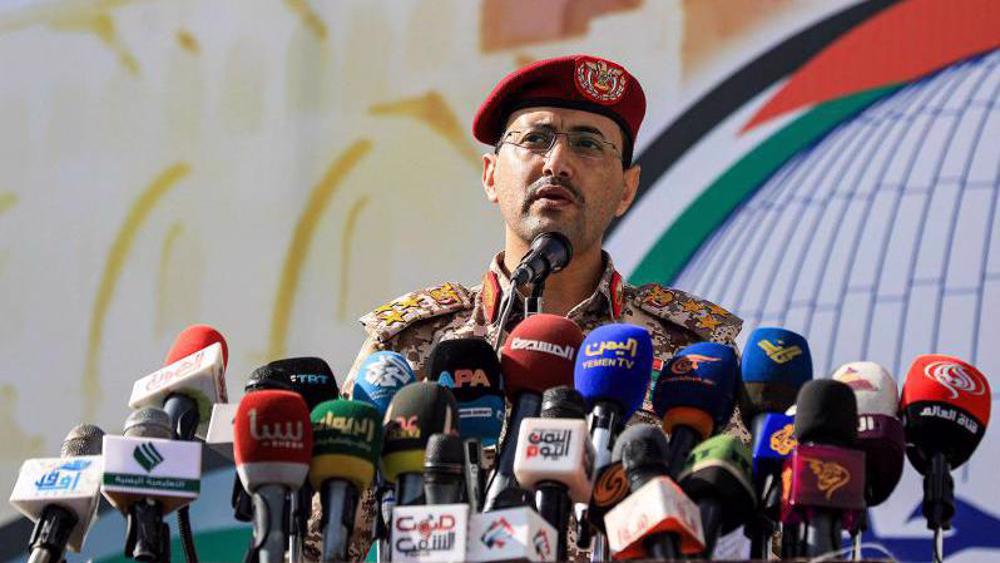
Yemeni army conducts three separate attacks on US warships in Red Sea
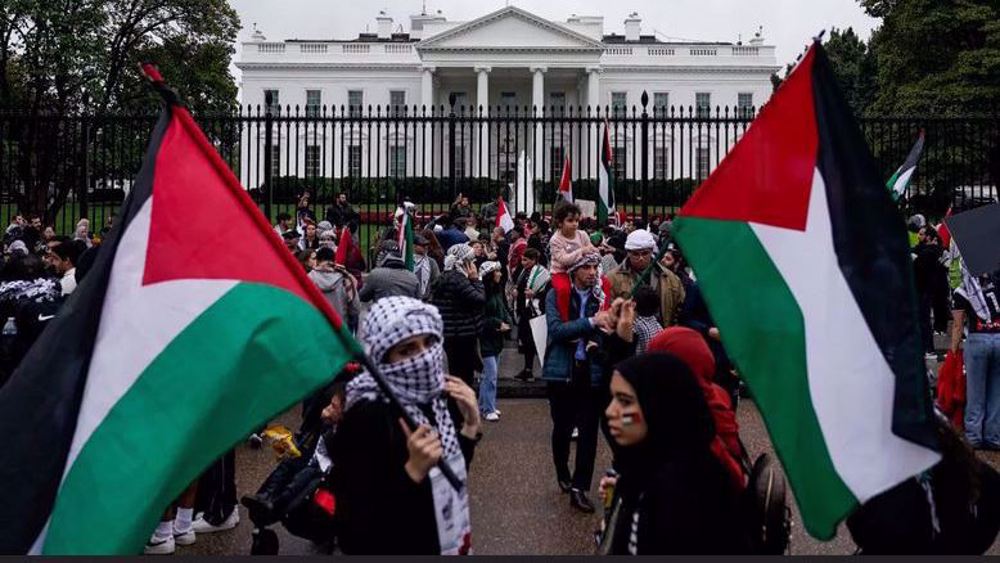
Zionist groups use facial recognition tech to identify pro-Palestine activists: Report
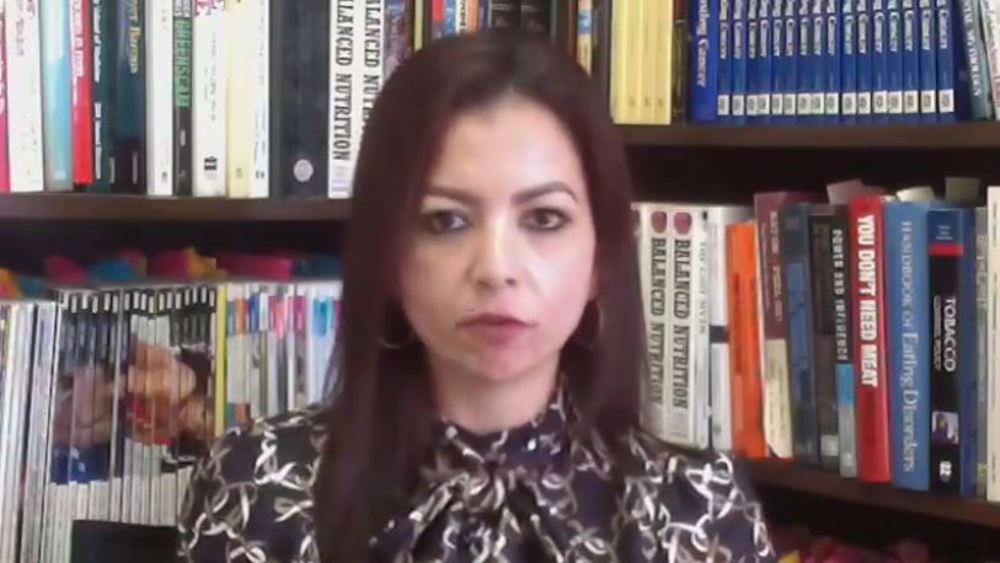
New York doctor fired for rejecting Zionist propaganda, defending resistance
Palestine Land Day: A powerful emblem of resistance against settler-colonialism
Iran wins Asian Freestyle Wrestling Championship in Jordan
14 Gaza medics killed by Israeli military fire found in Rafah: Red Crescent
Iran can rely on its hydrocarbon resources for 100 years: NIOC
Syria's Kurds reject legitimacy of new 'transitional government'
VIDEO | Press TV's News Headlines
VIDEO | Palestine Land Day
VIDEO | Seoul rally condemns Israeli attacks, US crackdown on pro-Palestinian students


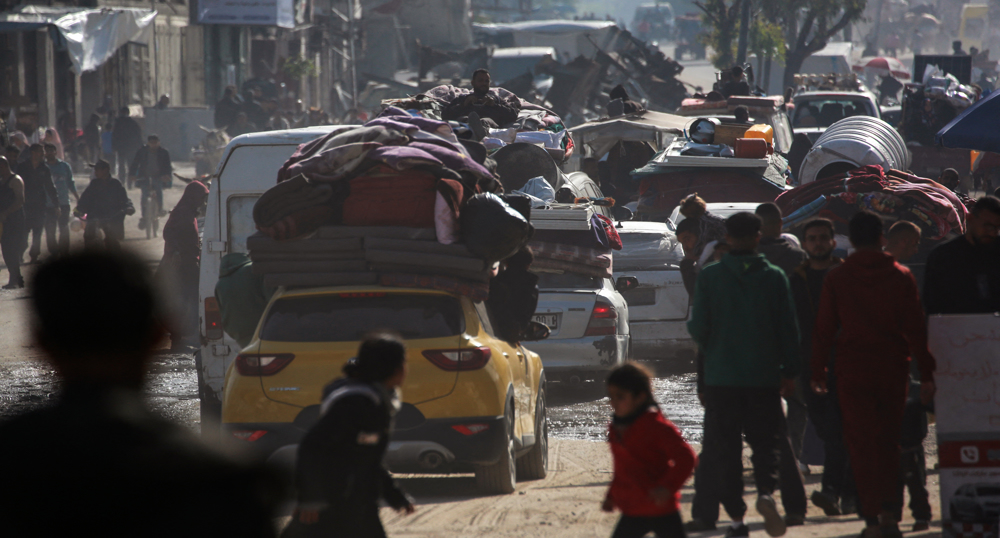
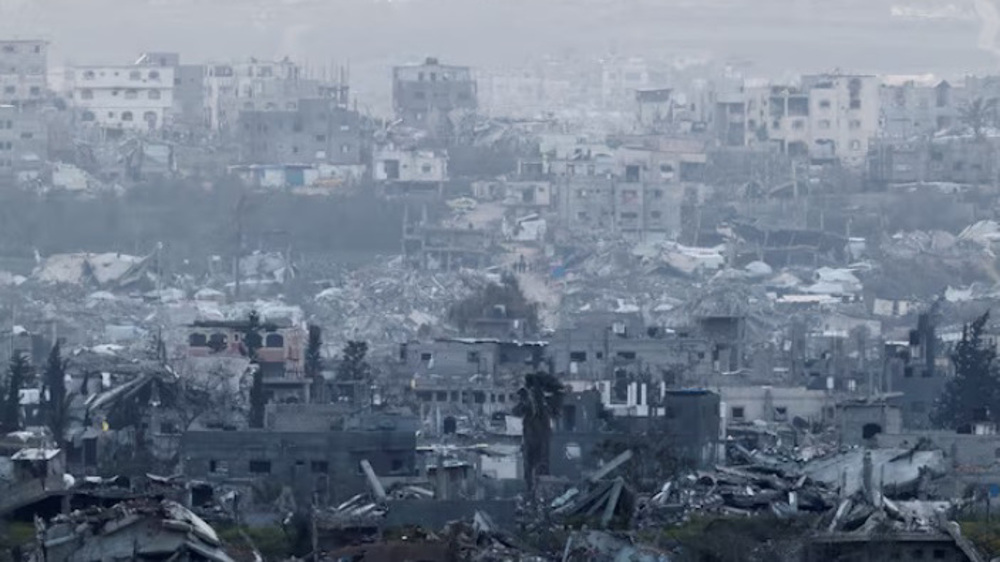




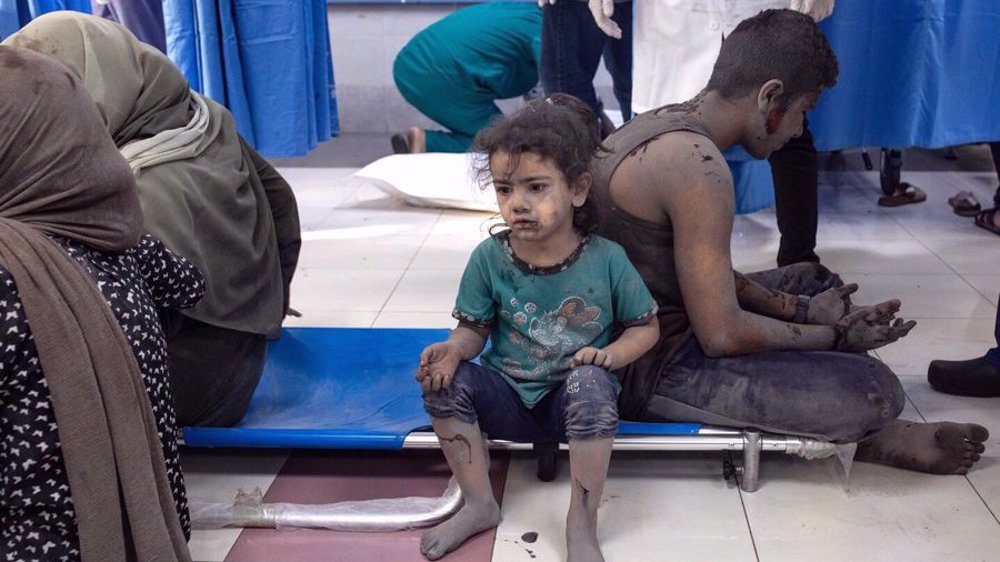
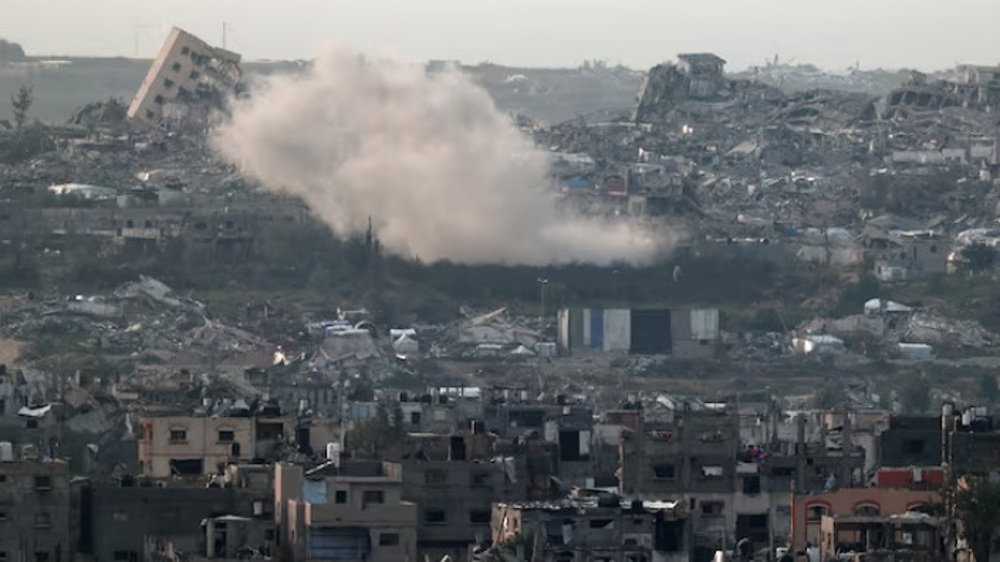
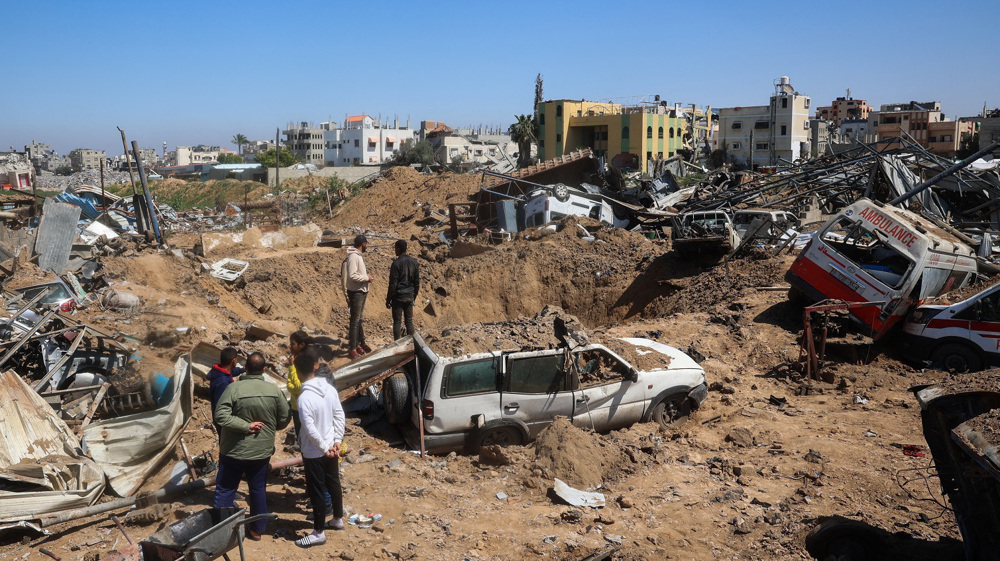
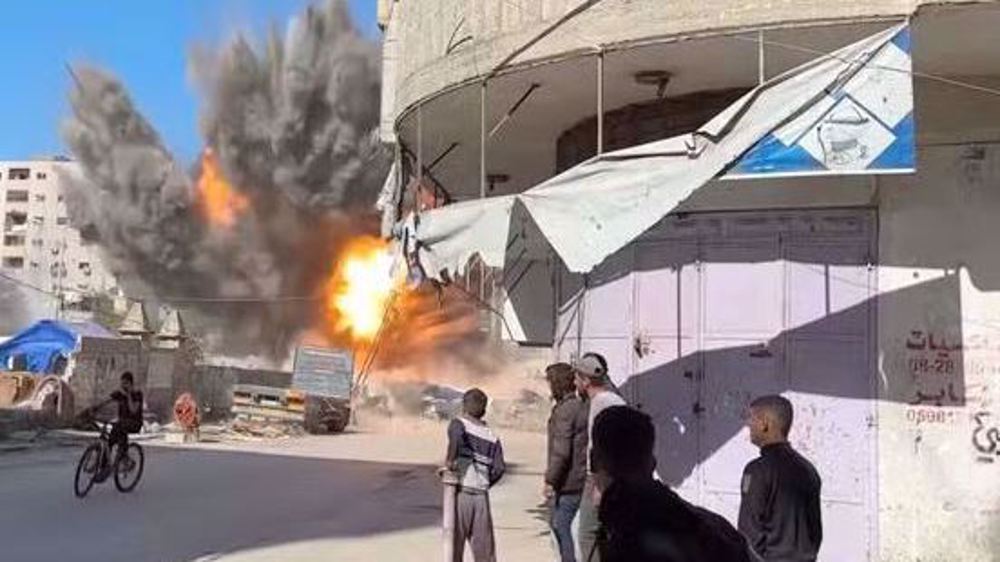

 This makes it easy to access the Press TV website
This makes it easy to access the Press TV website